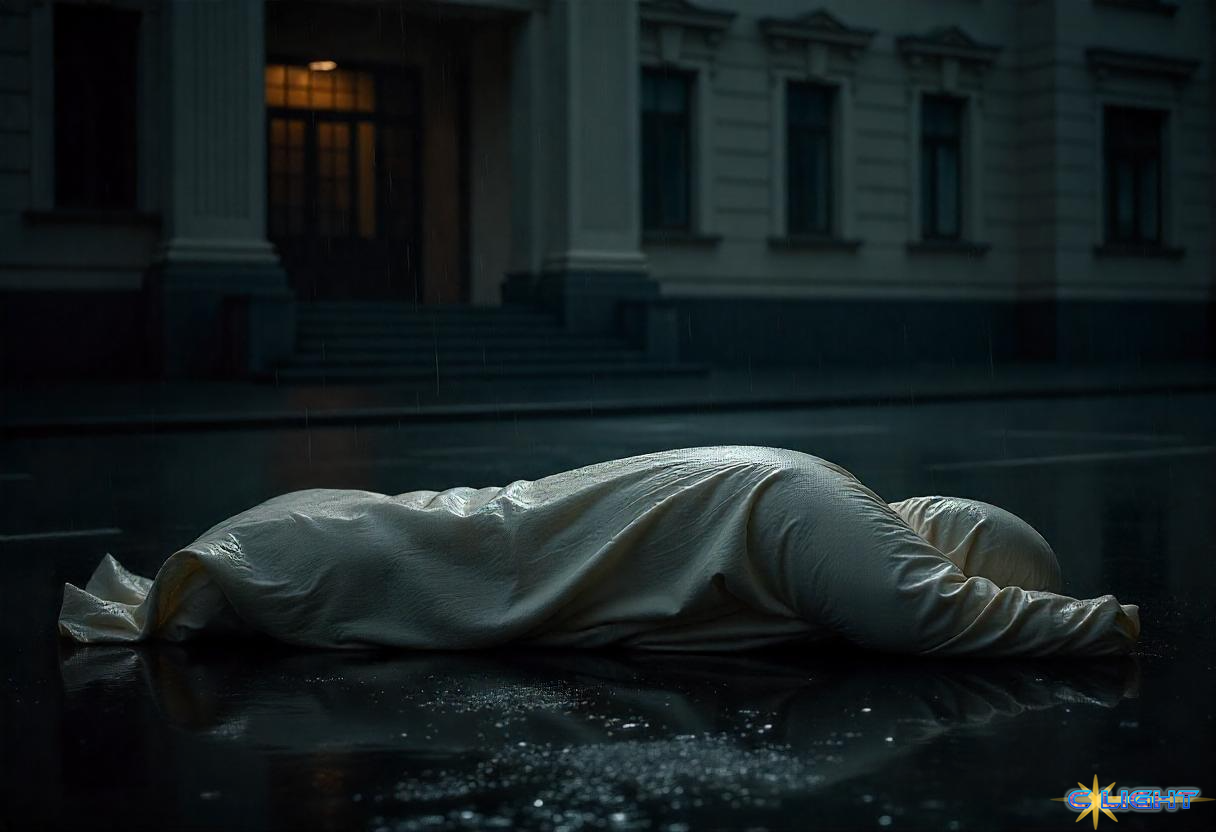The body bag arrived in Kyiv on February 14th this year, part of a prisoner exchange. Stamped across the white shroud was an alphanumeric code and four Cyrillic letters signifying “extensive damage to the coronary arteries.” The accompanying list noted an “unidentified male.” Inside, however, lay the body of a woman. Her head was shaved, her neck bruised, burn marks scarred her feet, a rib was broken, and examiners found possible traces of electric shock. Crucially, some organs, including her brain, were missing – a grotesque detail hinting at efforts to hide a more sinister cause of death.
A DNA test confirmed the unthinkable: this was Viktoriia Roshchyna, a 27-year-old Ukrainian journalist missing since August 2023 after being detained by Russian forces while reporting in occupied territory. Though Russian authorities had curtly informed her father of her death back in October 2024, the horrific state of her remains, returned months later under a veil of lies, tells a far more brutal story. It’s a story that rips away any lingering illusions about the nature of Vladimir Putin’s Russia and serves as a devastating testament to the price paid for truth-telling under its shadow.
Viktoriia Roshchyna died trying to illuminate the darkest corners of Russia’s occupation. A fearless, often lone-wolf reporter, she ventured repeatedly into Russian-held territories when most others could not or would not. She documented the resilience of occupied cities like Enerhodar, the site of Europe’s largest nuclear power plant. She investigated the sinister operations of the Wagner mercenary group, the abduction of Ukrainian children by Russian officials, and the abuses perpetrated by Russia’s Federal Security Service (FSB). She knew the risks intimately, having been detained once before and forced to read a statement crediting Russian soldiers with “saving” her. Her editors warned her; colleagues called her decision to return “suicide.” Yet, she persisted, telling her editor at Ukrainska Pravda, “I have to go because I’m the only journalist who goes.” She saw it as her mission, her duty, to “convey the truth.”
Her final journey led her through Poland, Latvia, and into Russia itself in July 2023 – how she managed entry remains a mystery – before she reached the occupied territories and was seized. She disappeared into Russia’s sprawling network of prisons and ad hoc detention sites, spending much of her captivity in Taganrog SIZO-2, a former juvenile facility turned notorious torture center just across the border from occupied Ukraine.

Thanks to the courageous work of the Viktoriia Project – a consortium of 45 journalists led by Forbidden Stories continuing the work of silenced reporters – and the harrowing testimony of former prisoners, the horrors of Taganrog are coming to light. Survivors describe systematic beatings with batons and mallets upon arrival, electrocution, near-drownings in tubs, sexual humiliation, forced nudity, starvation rations, constant surveillance, and psychological torment. They recount hearing screams echoing through the complex, overhearing guards discuss prisoners dying during interrogation, and knowing others took their own lives, unable to endure the abuse. Even amidst this barbarity, Roshchyna reportedly remained defiant, telling guards to their faces, “You are occupiers… I will never cooperate with you!”
This isn’t random brutality; it’s policy. As Alice Edwards, the UN’s special rapporteur on torture, stated unequivocally after documenting torture including mock executions and rape, “Look, I’m calling this part of Russian war policy. It’s clear that it’s organized. It’s clear that it’s systematic.” Thousands of Ukrainian civilians, detained without charge and held incommunicado like Roshchyna, have been subjected to this state-sanctioned terror.
Confronted with the evidence of Roshchyna’s likely torture and death, the Kremlin and the Russian prison service offered only silence. Worse, after notifying her father of her death, the Taganrog prison boss, Alexander Shtoda, later sent letters to both the father and the Committee to Protect Journalists denying Roshchyna was ever held there – a blatant, cruel lie consistent with Russia’s broader playbook of deception regarding its actions in Ukraine and its treatment of dissenters and journalists. This wall of denial attempts to obscure a reality that cases like Roshchyna’s make undeniable.
Her fate serves as a devastating rebuttal to any lingering Western tendencies to view Putin’s Russia through a lens of misplaced optimism or cold pragmatism detached from reality. It demolishes the notion of a rational actor amenable to negotiation without acknowledging the inherent brutality and disregard for international law at the regime’s core. Understanding the systemic cruelty faced by Viktoriia Roshchyna is essential for crafting any realistic or morally grounded policy towards Russia; it underscores exactly what Ukraine is fighting against and why its Eastern European neighbors watch Moscow with such apprehension.

Viktoriia Roshchyna’s sacrifice embodies the highest calling of journalism: to bear witness, to pursue truth, and to hold power accountable, no matter the personal cost. Her story is a visceral reminder that a free, independent, and unhindered press is not merely a feature of democratic societies; it is a fundamental necessity, a vital bulwark against the darkness of tyranny, disinformation, and state-sponsored cruelty. When journalists anywhere are targeted, threatened, imprisoned, or murdered for daring to report the truth, the foundations of accountability and an informed society are weakened everywhere.
Ukrainian prosecutors are investigating Viktoriia Roshchyna’s death as a war crime. Her father, clinging to faint hope amidst overwhelming grief, awaits further DNA confirmation. But the truth of her ordeal, and what it signifies about the regime responsible, is already tragically clear. Honoring her memory requires more than sorrow; it demands a renewed global commitment to protecting press freedom, confronting uncomfortable truths, and ensuring that the darkness she fought to expose is never allowed to prevail unchallenged.
Discover more from Clight Morning Analysis
Subscribe to get the latest posts sent to your email.










